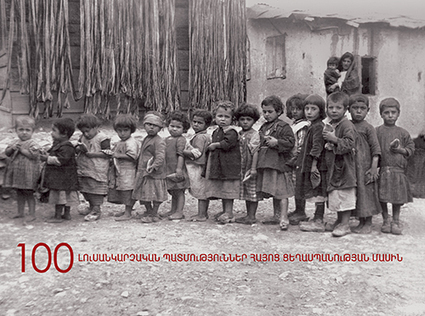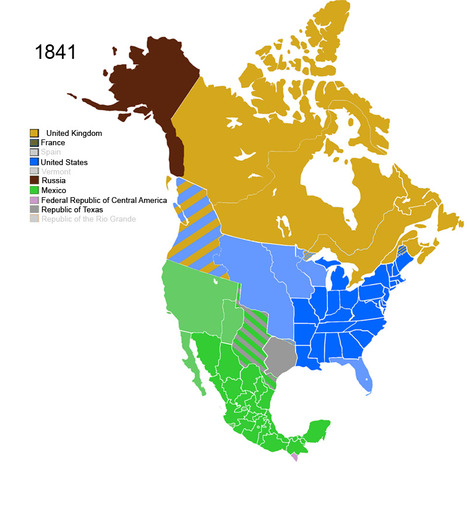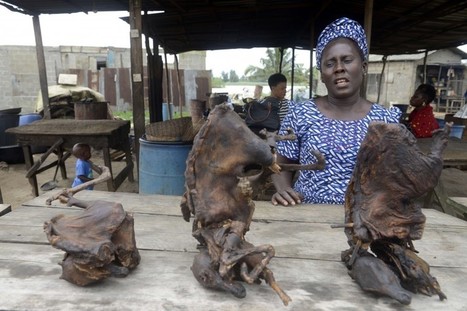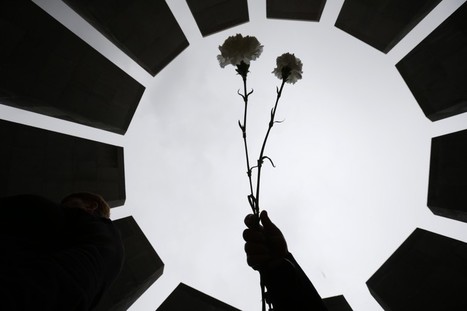The work of the acclaimed chef and writer, who has died at 61, provides a model for a truly inclusive urbanism based on the creativity of all human beings.
Get Started for FREE
Sign up with Facebook Sign up with X
I don't have a Facebook or a X account
 Your new post is loading... Your new post is loading...
 Your new post is loading... Your new post is loading...
Madison Murphy's curator insight,
March 13, 2017 3:15 PM
This article "The Languages The World Is Trying To Learn, According To Duolingo" relates to language in Human Geography because it is an app that describes how languages are being spread but also how countries are picking a certain language to be able to communicate with, which is English. Countries are picking English because they are needing a language to be able to communicate with other countries.
Hailey Austin's curator insight,
March 13, 2017 8:45 PM
This reflects to what we are learning in class because the articles talking about language. It's talking about how we all really have one language in come in all around the world. I think this is a good idea to have when your working with other countries or you are visiting them.
Hailey Austin's curator insight,
April 6, 2017 3:09 PM
This relates to my class because its talking about religion. It states that in many different parts in the world it is very dominate to learn English. But whats more interesting is that French is right after us. It talks about why English is so popular. Which is because its a language you can use when you visit places and you will be able to communicate. I think this article is interesting because it is talking about how we are the most popular language but its one of the most complicated one to learn. I also would understand why English is most learned because a lot of people want to visit Florida or even move their.
jorden harris's curator insight,
March 10, 2016 10:02 AM
the fact that out of all of the languages that could have been a lingua franca is suprising J.H.

Logan scully's curator insight,
March 10, 2016 10:13 AM
It is astouding to me that out of all those languages that could have been a lingua franca.-L.S.
Cohen Adkins's curator insight,
March 10, 2016 10:18 AM
In my opinion i believe that English should be used and learned by every country since most of the world already uses it.It would be more convenient for others to speak English however people should also be required to learn a side language and not just for college. -C.A

Chris Costa's curator insight,
October 27, 2015 4:27 PM
The issues with poverty and hunger that grip certain parts of Africa- particularly the sub-Sahara- find their roots in the utter subversion and destruction of African societies and states during the Trans-Atlantic Slave Trade and the subsequent colonization of Africa. European traders placed significant strain of existing African states during the 14th and 15th centuries, as the emergence of "slave states" and the extent of the trade completely changed the demographics of much of Africa. Labor shortages lead to technological shortfalls as well as the dissolution of many African states, as predatory states continued to destroy many civilizations and cultures. By the time that the majority of the West had banned the trade in the 19th century, the damage had already been done; many of the great civilizations of Africa had regressed or been entirely wiped out under the pressure of Europe's demand for slaves. The subsequent colonization of the continent only worsened matters for the Africans, as major hubs of civilization were captured, raided, and destroyed. Traditional societies were subjected to European influences and religion and eventually lost, and yet Europeans looked at the destruction and the lack of economic and political progress their actions had caused and blamed it on the inferiority of the Africans themselves. History has not been kind to Africa, and it is important to remember that that is not her fault. Many civilizations, cities, and states were lost as a direct result of contact with Europeans during the slave trade and the subsequent colonization of the continent.
Mark Hathaway's curator insight,
October 30, 2015 6:34 AM
Before European contact, Africa had a number of great urban cities. European arrival foresaw the destruction of those once grand cities. The Europeans brought diseases such as smallpox and influenza to the African continent. Those diseases would hamper the previously unexposed African population. Slavery also drained Africa of millions of people as well. Great African civilizations were brought down by these various calamities. European arrival was the death knell of the great African civilizations. Africa is still living with this legacy of destruction. Africa is the most rural region in the world, because of this legacy.
Gene Gagne's curator insight,
November 4, 2015 4:07 PM
Just another way to eliminate any African culture or customs.

Maricarmen Husson's curator insight,
April 17, 2015 7:37 PM
A 100 AÑOS DEL GENOCIDIO ARMENIO Cada año el 24 de abril, día de la conmemoración del Genocidio, nosotros los armenios recordamos la injusticia de un crimen que rara vez se reconoció y a menudo negó rotundamente. Era el 24 de abril de 1915, cuando los intelectuales armenios, profesionales, editores y líderes religiosos de Constantinopla fueron detenidos por las autoridades otomanas - y casi todos ellos ejecutados. Durante la Primera Guerra Mundial, el Imperio Otomano mató a tres de cada cuatro de sus ciudadanos armenios. La mayoría de los armenios vivos hoy son descendientes de los pocos sobrevivientes ". 
Kristin Mandsager San Bento's curator insight,
May 1, 2015 4:17 PM
I have to be honest, I never knew we had a Genocide Remembrance Day. As I get older, there seems to be a day for everything. This is a horrific act. Unfortunately, as we've seen historically many countries have tried this. There is never a good outcome. It's atrocious that we could ever standby and not do something. 
Eden Eaves's curator insight,
May 24, 2015 6:24 PM
Unit 3 For most of the world, the Armenian Genocide is the slaughter we know almost nothing about. But every year on April 24,Genocide Remembrance Day, Armenians all over the world remember the injustice of a crime that is rarely acknowledged and often flatly denied. It was April 24, 1915, when the Armenian intellectuals, professionals, editors and religious leaders in Constantinople were rounded up by the Ottoman authorities — and almost all of them executed. During World War I, the Ottoman Empire killed three of every four of its Armenian citizens. The majority of Armenians alive today are descendants of the few survivors

Kevin Cournoyer's curator insight,
April 8, 2015 1:33 PM
Wow. As a history major, I found this map timeline really interesting and really cool. It's a great example of how even though the physical geography of a place can remain the same, its political and economic geography can change so rapidly (or not so rapidly). It was especially interesting to see the brief stints that entities such as the Republic of the Rio Grande or the Confederate States of America did in the dividing up of North America over the last two and a half centuries. For someone who knows nothing about U.S. history, those blips on the radar beg the question, "what happened there?" How can a political entity encompass a geographic region and then disappear just as quickly?
And that ties into what I think this map is really about: colonialism. This map says a great deal about how European (or Western) empires carved up the New World and what some of their political or economic goals were in the times that the map shows. It's also important to note the title of the map: "Non-Native American Nations Control over North America". So as we see the map changing to show European or United States expansion, what we DON'T see is the gradual loss of land experienced by the various Native American tribes that inhabited the continent long before Europeans ever laid eyes on it. This map, therefore, highlights how political and economic geography can change so drastically when groups with a lot of economic, political, and military power are at odds with groups who are severely disadvantaged in these areas.
Mark Hathaway's curator insight,
September 17, 2015 9:00 AM
This map is an excellent resource in show the evolution of colonial claims to North America.. It is fascinating to watch all the political changes that have occurred on the continent in over the past 500 years. The biggest change is the evolutions of the United Sates from a small city state like nation to an empire on both the Atlantic and Pacific oceans. This is also an extremely sad story to be told from this map. The loss and destruction of Native Americans is next to slavery is the greatest sin of America. This map tells the complex story of our Continent.

Kristin Mandsager San Bento's curator insight,
April 9, 2015 2:21 PM
Before I even read the article, my first thought went to the Linneaus classification. That really damaged history with this one chart. I think people still think of Africans and blacks(very dark blacks) as dirty or unintelligent. Which is horrible and couldn't be further from the truth. Misinforming the public is criminal. News media and social media need to be careful and educate properly. I've been asked from a customs offical, "Have you been to Africa in the past 6 months?" Which is a very blanket question because Africa is a continent. There were areas that were not hit with Ebola. 
Chris Costa's curator insight,
October 27, 2015 4:37 PM
Those who deny the continued influence of racism in our society are blinding themselves to the truth. Contemporary influences of the racism that plagued the preceding centuries are still found in most major media depictions of Africa. The Ebola epidemic has served to highlight the bigotry that plagues Western media, as the assumption that all of Africa is diseased and dirty is continuously perpetuated (when, in reality, Ebola only affected a very small part of the continent). Africa is presented as "other," a backwards continent that is in desperate need of Western help and guidance- in what was is that different from the European colonizers who also viewed their actions as benevolent attempts to "civilize" the uncivilized? That mindset has not left Western circles, and yet we continue to pat ourselves on the back and congratulate ourselves for suddenly being so tolerant. The insensitivity of Western audiences to the concerns of black individuals both at home and in Africa related to the prevalence of racism highlights how determined mainstream media is to deny the existence of a problem. Until we recognize the Eurocentrism that continues to plague our media and make the necessary moves to correct the practice, harmful depictions of Africa will continue to loom large in Western media and in the opinions of many Europeans and Americans alike.
Mark Hathaway's curator insight,
October 30, 2015 7:12 AM
Africa has long been treated by the western media as a dark , brutish, uncivilized place. Africa is a place were people starve and murder each other in large numbers. There is so much more to Africa than the picture I just described. The problem is, many people just do not accept the existence of a culturally complex Africa. That narrative would destroy the traditional darker narrative of the past 500 years. A narrative grounded in the beliefs that blacks are inherently inferior beings. During the Ebola crises, the calls to cut off travel to Africa were quick and demanding. Had the crises been in England, would those same calls have been so loud? I think we all can guess the answer to that question. Much progress has been made, but we still need to change our cultural depiction of Africa.

Kaitlin Young's curator insight,
December 13, 2014 12:57 PM
Potatoes are one of the most widespread foods in the world, due to its resiliency to harsh weather conditions and its ability to grow to large sizes. Potatoes can also be traced to show the beginning forces of globalization. Before modern communication and transportation technology, globalization occurred at a much slower rate. Globalization spread through trade routes in the forms of foods, resources, and therefore cultures and people.
BrianCaldwell7's curator insight,
March 16, 2016 3:52 PM
The Colombian Exchange is a term that describes the most dramatic biologic transfer in history. European explorers brought animals and agricultural items from the Old World to the New and subsequently brought back items from the New World back to the Old. This exchange profoundly reshaped many societies as agricultural diffusion of the potato lead to the changes across northern Europe.
Tags: agriculture, food production, diffusion, historical, colonialism, Europe.

Kevin Cournoyer's curator insight,
May 6, 2015 10:46 PM
This map is a simple but powerful one. Africa is the continent that contains the most nations (53), yet it uses only six languages for business. Not surprisingly, all of the languages (with the exception of Arabic) are European in origin. Clearly, the effects of colonialism are still felt around the world in former colonies. The languages that were forced upon various African countries by their colonizers have endured and become the main languages of business in their respective countries. What is just as unfortunate as the roots of colonialism holding fast, if not more so, is the absence of any indigenous languages being used as the language of business in any of the countries of Africa. While using a business language that is spoken by much of the world is surely a matter of practicality and logistics, it is still robbing African countries of their heritage and culture to some degree.
This brings up the issue of globalization and how it is constantly at odds with the preservation of culture and tradition. In order for Africa (or any continent or region or country) to function in the modern world, it must be capable of conducting business in a language that is spoken by its business partners. The ability to do business with virtually any person, company, or country in the world is an obviously invaluable one. At the same time, however, it allows for the subtle and gradual erasure of unique culture and traditions. So while it would be ideal for cultural preservation for countries to conduct business in their indigenous languages, it seems to be a necessary evil for smaller and less influential countries to adopt the languages of their more powerful and influential business partners if they wish to survive in today's world. 
Chris Costa's curator insight,
October 29, 2015 4:24 PM
The lingering effects of colonialism, so strongly relevant in every aspect of African ways of life, are perhaps most evident in the "lingua franca" of African nations today. With a multitude of different ethnicities and languages in use in every African nation today, the result of the arbitrarily drawn national borders made by European colonizers, necessitates the use of the one language that's commonly spoken across every independent nation- a European tongue. This system, while a necessity in today's world, is a solution that no one is quite happy with. It reminds Africans of all ages of the power still held by their colonizers over their everyday lives, a stark reminder of the horrors of the previous century at every business meeting and every exchange of goods. This harms the national psyche of each nation, as well as undermining the importance and pride Africans deservedly maintain in their own native languages. European-made borders, however, make it difficult to find another, native language that every ethnic group can agree upon. As a result, the European languages are still in use in Africa, and will most likely still be in use for some time to come. It's a system that no one likes but, for the time being, everyone must accept as reality.
Mark Hathaway's curator insight,
October 30, 2015 7:26 AM
This map is a great resource in showing the diversity of language in Africa. Of course, this map discounts the many native African languages. It instead focuses on the language of business in the continent. That language, has been influence by the European colonization of Africa. The chosen language of business is often tied to the colonizer of the region. The diversity of language in Africa is staggering to say the least. |

Alex Smiga's curator insight,
August 10, 2017 7:02 AM
Seth Dixon's insight: A century and a half ago, the immigration debate and geopolitical shifts in power on the United States-Mexico border reflected a profoundly different dynamic than it does today. This history has enduring cultural impacts on southwestern states that had the international border jump them.

Kelsey McIntosh's curator insight,
February 13, 2018 9:13 PM
In the Chiapas, Mexico there is a 16th century church that has been revealed due to the decrease in a reservoirs water level. This brief article is accompanied by pictures of the church that was abandoned in the 1770's do to the plague. According to the article, this is the second time the place of worship has been seen since 2002.

Olivia Campanella's curator insight,
September 19, 2018 10:53 AM
This 16th century church first emerged from the waters of the Nezahualcoyotl reservoir in the Southern Mexican state of the Chiapas. And since the reservoir was completed in 1966 with the waters dropping low enough to reveal the church for the 2nd time. The waters have dropped low enough in 2002 for people to actually walk inside and stand on.

Kelvis Hernandez's curator insight,
September 29, 2018 11:53 PM
"You go in the cage, cage goes in the water, you go in the water. Churches in the water, our church." At least I am pretty sure that's how the line from Steven Speilberg's 1975 thriller "Churches". This 16th-century church just emerged from the nezahualcoyotl reservoir in Mexico which hasn't occurred since 2002. The temple of Santiago was built by monks who came to Mexico around the late 16th century, but it was ultimately abandoned after being hit by the plague in 1773-1776. The drought in the area caused the water level to drop 82 feet. This being the second time water levels have revealed the church, in 2002 visitors were able to walk into the temple itself. 1

Padriag John-David Mahoney's curator insight,
April 28, 2015 6:18 PM
I have often thought about this. The Armenian genocide was the first genocide of the 20th century, but was largely forgotten. Very few- VERY FEW- American students learn about it before college or high school. What do we learn about? The only genocide I remember being taught in school was the Holocaust- the Jewish Genocide at the hands of Nazi Germany. But there was also the genocide and apartheid in Rwanda and the Khmer Rouge in Cambodia. My father taught me all about all of these genocides. There is a statue outside Auschwitz concentration camp with the inscription "Never Again". But what have the many organizations done to prevent or reveal such atrocities? I don't see the Shoah foundation standing up for the Armenians now, or the victims of the Cambodian or Rwandan genocides. I believe the inscription on that statue truly means ''Never again.........to the Jews''
Mark Hathaway's curator insight,
October 30, 2015 6:50 AM
The removal of an historical statue, is a broader reflection of what the population of a particular place is thinking. Who a people choose to honor, is a statement of the ideals they hope to espier to. For many people in South Africa, Cecil Rhodes is a symbol of racist colonial tendencies. You can not separate Rhodes from the age of western imperialism. He was one of the leading figures in the scramble for Africa in the late 19th century. In the United States we have seen a similar push to remove statues of historical figures with connections to slavery and racism. Many have called for the removal of statues honoring confederate leaders such as Jefferson Davis or Robert E Lee. The push has even spread to figures beyond those directly connected to the confederacy. The democratic party has removed the names of Thomas Jefferson and Andrew Jackson from there annual party dinners. There connections with slavery and Native American treatment are just too much for some outraged democrats to handle. I am uneasy about the removals of these statues. History can never be erased. It is futile, to even attempt to do such a thing. Historical figures should be judged by the context of the times in which they lived. It is unfair to judge Thomas Jefferson by the standards of our modern age society. The overt political correctness is troubling to say the least. It is a whitewash of history.
Shane C Cook's curator insight,
May 27, 2015 8:54 AM
Africa is a very diverse and complicated continent due o mistakes made in the Berlin Conference. The strange boundaries drawn restrict these African nations to be one with their own people not with their enemies. 
Chris Costa's curator insight,
October 27, 2015 4:51 PM
We have seen the repercussions of ethnic tensions play out in the Balkans, the Middle East, and even in the United States, and Africa is no exception. Arbitrarily drawn national borders- the remnants of European colonialism- means that there is often significant ethnic diversity within many African nations. Although this creates interesting blends of language and culture, it has often bred violence in many countries, perhaps most notably in South Africa and Rwanda. Although many members of the West like to lump the entire continent into a single category, this could not be further from the truth. The second largest continent with extreme biodiversity, it has bred thousands of languages and hundreds of different cultural backgrounds, sometimes within a single country. It is important for the West to understand the complex make-up of the African continent in order to avoid the Eurocentric assumptions many Westerners make when discussing the continent. There isn't a single "Africa"- there isn't even a single "Nigeria," but rather a multitude of different peoples and cultures, equally as complex as those found in other regions of the world. This map does a very good job at illustrating the complexity and richness of the continent.
Mark Hathaway's curator insight,
October 30, 2015 7:20 AM
People often underestimate how diverse Africa really is. We often have the tendency to lump all Africans together in one large ethnic group. The actual number of different ethnic groups in Africa is rather staggering. This map can also be used as a partial explanation for the amount of ethnic conflict in Africa. Often times, these ethnic groups are squashed together in states with poorly drawn borders. Under that situation, ethnic conflict becomes inevitable.
Michael Mazo's curator insight,
October 6, 2014 3:04 PM
Iraq's position in regards to the militant groups has steadily affected the countries global and economic status in more ways than one. As these militant groups such as ISIS continue to grow then so will their territory and intensity of self-less acts. Not only are these groups a disease to the world but they affect the way our global economy works. ISIS controls oil fields and vast amounts of land in Iraq, Syria and other middle-eastern countries. In my opinion, America's decision to fire airstrikes onto these militant groups could be both good and bad. Good because it will decrease the amount of ISIS members but bad because it could be an incentive for ISIS to cause further damage and chaos in reference to revenge. At this pace, ISIS and other such groups will gain claimed territory in which will come at the cost of innocent lives of women and children. They must be stopped before issues get worse.

Kevin Cournoyer's curator insight,
May 6, 2015 10:46 PM
This map is a simple but powerful one. Africa is the continent that contains the most nations (53), yet it uses only six languages for business. Not surprisingly, all of the languages (with the exception of Arabic) are European in origin. Clearly, the effects of colonialism are still felt around the world in former colonies. The languages that were forced upon various African countries by their colonizers have endured and become the main languages of business in their respective countries. What is just as unfortunate as the roots of colonialism holding fast, if not more so, is the absence of any indigenous languages being used as the language of business in any of the countries of Africa. While using a business language that is spoken by much of the world is surely a matter of practicality and logistics, it is still robbing African countries of their heritage and culture to some degree.
This brings up the issue of globalization and how it is constantly at odds with the preservation of culture and tradition. In order for Africa (or any continent or region or country) to function in the modern world, it must be capable of conducting business in a language that is spoken by its business partners. The ability to do business with virtually any person, company, or country in the world is an obviously invaluable one. At the same time, however, it allows for the subtle and gradual erasure of unique culture and traditions. So while it would be ideal for cultural preservation for countries to conduct business in their indigenous languages, it seems to be a necessary evil for smaller and less influential countries to adopt the languages of their more powerful and influential business partners if they wish to survive in today's world. 
Chris Costa's curator insight,
October 29, 2015 4:24 PM
The lingering effects of colonialism, so strongly relevant in every aspect of African ways of life, are perhaps most evident in the "lingua franca" of African nations today. With a multitude of different ethnicities and languages in use in every African nation today, the result of the arbitrarily drawn national borders made by European colonizers, necessitates the use of the one language that's commonly spoken across every independent nation- a European tongue. This system, while a necessity in today's world, is a solution that no one is quite happy with. It reminds Africans of all ages of the power still held by their colonizers over their everyday lives, a stark reminder of the horrors of the previous century at every business meeting and every exchange of goods. This harms the national psyche of each nation, as well as undermining the importance and pride Africans deservedly maintain in their own native languages. European-made borders, however, make it difficult to find another, native language that every ethnic group can agree upon. As a result, the European languages are still in use in Africa, and will most likely still be in use for some time to come. It's a system that no one likes but, for the time being, everyone must accept as reality.
Mark Hathaway's curator insight,
October 30, 2015 7:26 AM
This map is a great resource in showing the diversity of language in Africa. Of course, this map discounts the many native African languages. It instead focuses on the language of business in the continent. That language, has been influence by the European colonization of Africa. The chosen language of business is often tied to the colonizer of the region. The diversity of language in Africa is staggering to say the least.

Jess Deady's curator insight,
April 30, 2014 8:33 PM
This is basically like a mini Holocaust. When do people think its okay to do something like this? It boggles my mind how things like this can actually go on in the world still with todays technologies and armed forces. 
Bob Beaven's curator insight,
March 5, 2015 2:27 PM
This article shows the great deal of overlap between Geography and History. Today, when people think of Sochi, they will remember the Olympic games, and the epic hockey battle between the USA and the Russian Federation. Yet, as this article discusses, Sochi was once the sight of a military battle, and a massacre. The Russian Empire under Alexander II wanted to expand its borders to be well defined and would wage war against the Circassians who lived in the region. When they would not go to the Ottoman Empire, and fought the Russians, the army and the Czar were prepared to fight them. As a result, on Red Hill, the native people had a last stand against the Russian Army and were massacred. Yet, the southern region of Russia near the middleast, to this day, is not secure. The history of this region has guaranteed that the people living in these regions of the country would come to loathe Russia. In fact, this area in the form of Chechnya, has exported the hatred and Islamic fervor of the region, to the United States in the Boston Marathon Bombings of 2013. History and Geography are not neat boxes that are separate from each other, they are always influencing one another in all actuality. 
Calem Cauley's curator insight,
April 7, 2016 10:16 AM
I didn't know how ruthless this leader was. At the little lest threat the czar would fight them and demolish them.
|


























